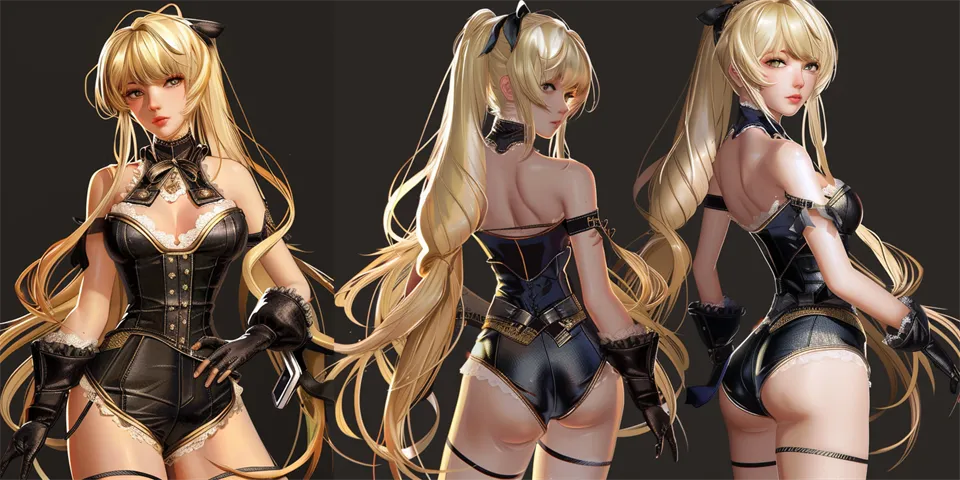Does fanfiction violate copyright
Fanfiction is a term used to describe stories about characters or settings written by fans of the original work, rather than by the original creator. This type of creation has attracted massive followings around the globe, with numerous web platforms like FanFiction.net, Wattpad, AO3 (Archive of Our Own) serving as homes for these fan-created narratives. This increasingly popular practice, however, raises intricate questions related to copyright law, calling us to explore and dissect various aspects of fanfiction's intersection with copyright.
Defining Copyright
It's essential to start by understanding what copyright is. Copyright is a legal norm that grants exclusive rights to the creator of an original work. However, copyright law is not as simple or straightforward as it might seem. There are also different types of copyright, such as economic and moral rights. Economic rights include the rights to reproduce, distribute, and adapt the work, among other things. While moral rights, typically include the right to be recognized as the creator of the work.

Understanding the nuances of copyright law will clarify why the issue of fanfiction is so complex. Because fanfic frequently involves adaptions and derivations of copyrighted work, the lines can quickly become blurred.
Is Fanfiction a Violation?
On its surface, fanfiction seems to infringe on the original creator's exclusive rights to reproduce and adapt their work. Because fanfic writers, by definition, are creating adaptations of the primary material, it may look like they are violating copyright law. However, the legal implications of fanfiction are not as straightforward as they might initially seem.
The question of whether fanfiction violates copyright law is one that doesn't have a definitive answer. It largely hinges on the exceptions and limitations of copyright law itself, how the fanfiction is used, and if it qualifies as transformative work, among other things.
Exceptions and Limitations of Copyright Law
Copyright law does not give the holder absolute rights. Instead, it has exceptions like the “Fair Use Doctrine�in the United States, which allows for certain uses of copyrighted materials without permission. Factors considered under fair use include the purpose and character of use, the nature of the copyrighted work, the amount used in relation to the whole work, and the effect on the market for the original work.
While some fanfiction can fall into the category of fair use, other fan works may not. Fair use is a subjective doctrine and is determined on a case-by-case basis. Therefore, the legality of different fanfictions can vary widely.
The Transformative Work Debate
The transformative work debate plays a huge role when discussing copyright infringement in fanfiction. In copyright law, a transformative work significantly alters the original work's nature or character with new expression, meaning, or message. If a fanfic is deemed transformative enough, it could potentially fall under the fair use clause.
However, whether a fanfic qualifies as a transformative work is often down to individual interpretation and can end up being a grey area in legal disputes. Some fanfics protrude as more transformative than others; for example, parodies, satires, or fanfics that significantly change the original's setting or context.
Safeguarding Fan Creations
Organizations like the Organization for Transformative Works (OTW) have provided protection and advocacy for fan works. OTW operates AO3 (archiveofourown.org), a non-profit open-source repository for fanfiction and other fan works. OTW advocates for a broad interpretation of fair use and offers resources to fans facing legal challenges stemming from their creations.
Additionally, many fanfic writers further protect themselves by explicitly stating that their work is unfunded, unofficial, and not intended for commercial gain, rigidly separating themselves from any monetization that may aggravate copyright claims.
Framing Fanfiction in a Positive Light
It's important to recognize the cultural significance and substantiality of fanfiction. Fanfic has a long history of fostering creativity and community among fans. It allows fans to explore alternative storylines, deepen character development, and broaden a work's inclusivity.
Moreover, creators and publishers have been known to embrace fan works, seeing them as a testament to their stories' impact and an enhancement to their fandoms. For example, J.K. Rowling has expressed approval of Harry Potter fanfiction under the condition that they remain non-commercial.
Conclusion
In sum, the intersection of fanfiction and copyright law is knowing a precarious landscape populated by complexities, exceptions, and separate interpretations. Each piece of fanfiction uniquely exists and thus calls for individualized examination under copyright law. As fan creations continue to rise, so too will the need for clearly defining these gray areas legal-wise.
Common Questions
Q: Can I be sued for writing fanfiction?
A: While technically possible if the creator decides their copyright has been infringed, it's generally considered unlikely unless the fanfic is being used for commercial gain. Most creators tolerate, if not embrace, fan works.
Q: Is sharing my fanfiction online safe?
A: Generally, sharing fanfiction online poses minimal risk, especially if it's non-commercial and transformative. However, it's important to understand the potential legal implications.
Q: Does labeling my work as "unofficial" protect me from copyright claims?
A: While labeling can help, it is not a surefire protection. The way the fanfic is used and if it qualifies as transformative work, among other things, are also critical factors.
References
1. Tushnet, R. (2007). Legal Fictions: Copyright, Fan Fiction, and a New Common Law. Loyola of Los Angeles Entertainment Law Review, Volume 17, Issue 3.
2. United States Copyright Office. (n.d.). More Information on Fair Use. https://www.copyright.gov/fair-use/more-info.html.
3. Organization for Transformative Works. (n.d.). Legal Advocacy. https://www.transformativeworks.org/legal/.
